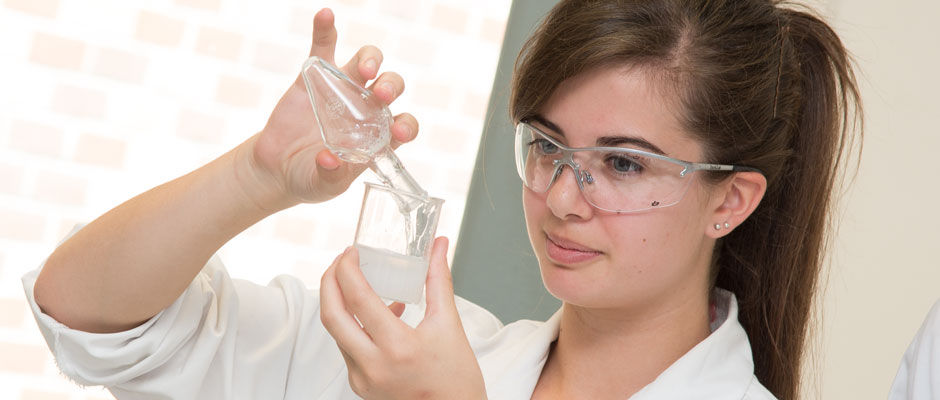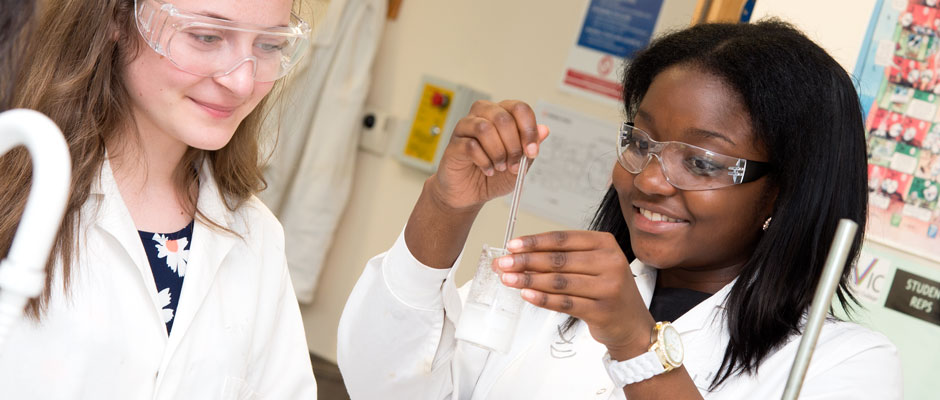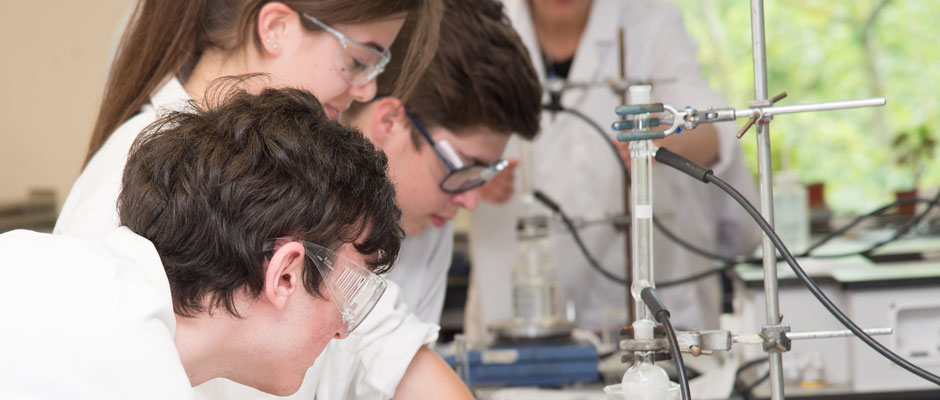
Science
WHAT'S IT ALL ABOUT?
Science impacts on our lives every day. It improves our health, helps solve crime and broadens our understanding of the world around us. Studying Science can help you to progress to university or move to many careers such as forensics, biomedical science, nursing and veterinary work. Fascinating new discoveries are made daily in laboratories around the world and you could be part of this exciting world of exploration.
WHAT WILL I DO?
Applied Science is a practical, hands-on course where you will study Physics, Chemistry and Biology. You will also develop your skill in maths and English. These courses will give you a broad scientific base which will prepare you for higher level study, including a Higher Apprenticeship, or employment.
WHAT CAN I DO NEXT?
This course can lead on to many different careers. Students have gone on to careers in Biomedical Science, Forensic Science, Veterinary Nursing, Chemical Engineering, Child or Adult Nursing, Wildlife Management, Paramedic Science and Criminology. You can also progress to university, an Apprenticeship or into employment.



